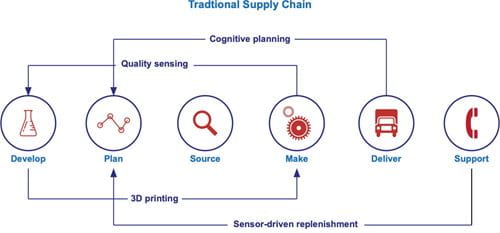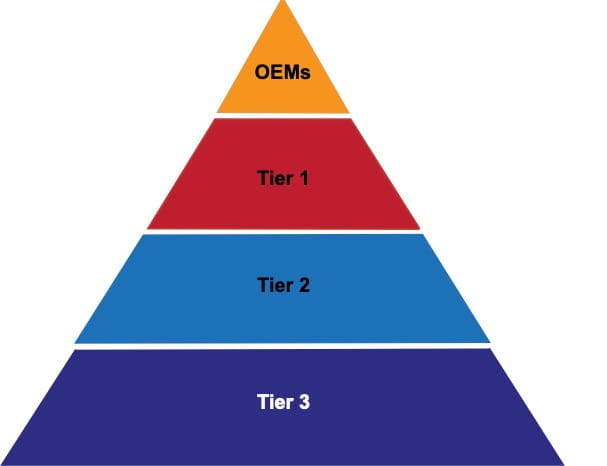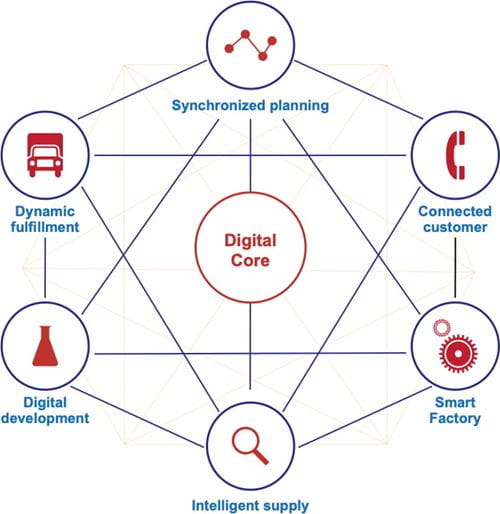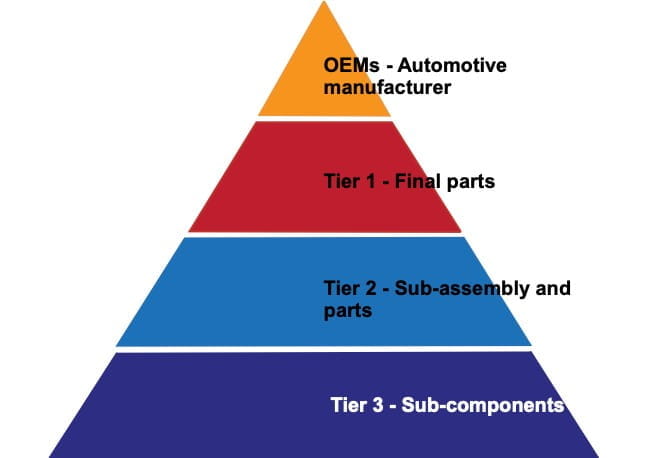Make UK is backing manufacturing - helping our sector to engineer a digital, global, and green future.
From the first industrial revolution to the emergence of the fourth, the manufacturing sector has been the UK’s economic engine and the world’s workshop. Manufacturers have created the new technologies of today and are designing the innovations of tomorrow. They are redesigning workplaces to incorporate new technology, and using smart data and insights to drive efficiency through digitalisation.Manufacturers are making the digital future a reality.
But to do this successfully, the UK manufacturing sector has constantly had to adapt, evolve and reinvent itself to the changing global environment it faces. While people might think that ‘we don’t make anything in this country any more’, that couldn’t be further from the case. In fact we are the 8th largest manufacturing nation in the world, and UK manufacturing:
- accounts for £192 billion of output;
- employs 2.7 million employees, with average salaries 13% higher than the rest of the economy;
- accounts for 44% of global exports
- 15% of total business investment;
- 66% of private sector research and development spend; and
- helps to make the UK the world’s 10th largest exporter
Whilst there are many factors that are integral to the success of UK manufacturing, the evolution of supply chains which link countries, companies and sectors, has been crucial. Make UK, in partnership wth Oracle, will be producing six blogs in which we will be discussing what supply chains look like in the manufacturing sector and how they have changed; explore the knock-on effect of geopolitical events such as Covid-19 on supply chains, consider how manufacturers can build resilience to mitigate these geopolitical events, and ask what support UK manufacturing needs.
We will also be exploring these topics in two exclusive webinars hosted by Oracle - more details to follow.
Never break the chain?
Traditional supply chains in the manufacturing sector were quite literally viewed as ‘chains’. Linear processes where each function or process was siloed, carried out by one or a small group of manufacturers, and once completed, passed onto the next manufacturer for the next stage. This allowed manufacturers to build competitive advantages through product or service differentiation.


But supply chains today have evolved. They perfectly encapsulate the complexity of UK manufacturing in today’s connected world - integrated, sophisticated and global.
“Supply chains are no longer chains, they are complex supply networks”
Advances in technology, information systems and the Fourth Industrial Revolution have meant many manufacturers are moving towards, adopting, or even already part of Digital Supply Networks. Digital Supply Networks (DNS) integrate the use of technology to create networks of manufacturers that are connected via real-time data.
DSN gives manufacturers end-to-end visibility, encourages greater collaboration amongst suppliers, and allows manufacturers to be much more responsive to changes in demand and supply. It also reflects the complexity of manufacturing products, from cars, food, to electronics. Parts and components are often sourced from across the world, modified and adapted before being sent elsewhere for the next part of the manufacturing process. Moving back and forth between sectors, companies and countries in the process.
How many components does it take to make a car? All of them!”


Source: Make UK Sector Bulletin: Aerospace, 2017, Deloitte, COVID-19: Managing supply chain risk and disruption, 2020
However, it only requires one out of 30,000 components to be missing and the car cannot be made. Geopolitical events such as Covid-19 have shown that even with the best technology, supply chains and networks remain exposed to both demand-side and supply-side risks. The more complex and international the supply chain, the greater the exposure.
Building resilience is key, in practice this means:
- a detailed understanding of your supply network and knowledge of where exactly components are sourced from
- evaluating possible interruptions and working alongside suppliers in risk management planning
- reinforce and strengthen the partner relationship with suppliers
- Identify and understand the risks to allow your businesses to take proactive steps in modifying processes and accepting changes if and when they occur.
Blog authors Bhavina Bharkhada (Make UK Senior Campaigns & Policy Manager) and David Fagan (External Affairs Executive). Get involved in the conversation @MakeUKCampaigns @SCMOracle #MakeitSmart
